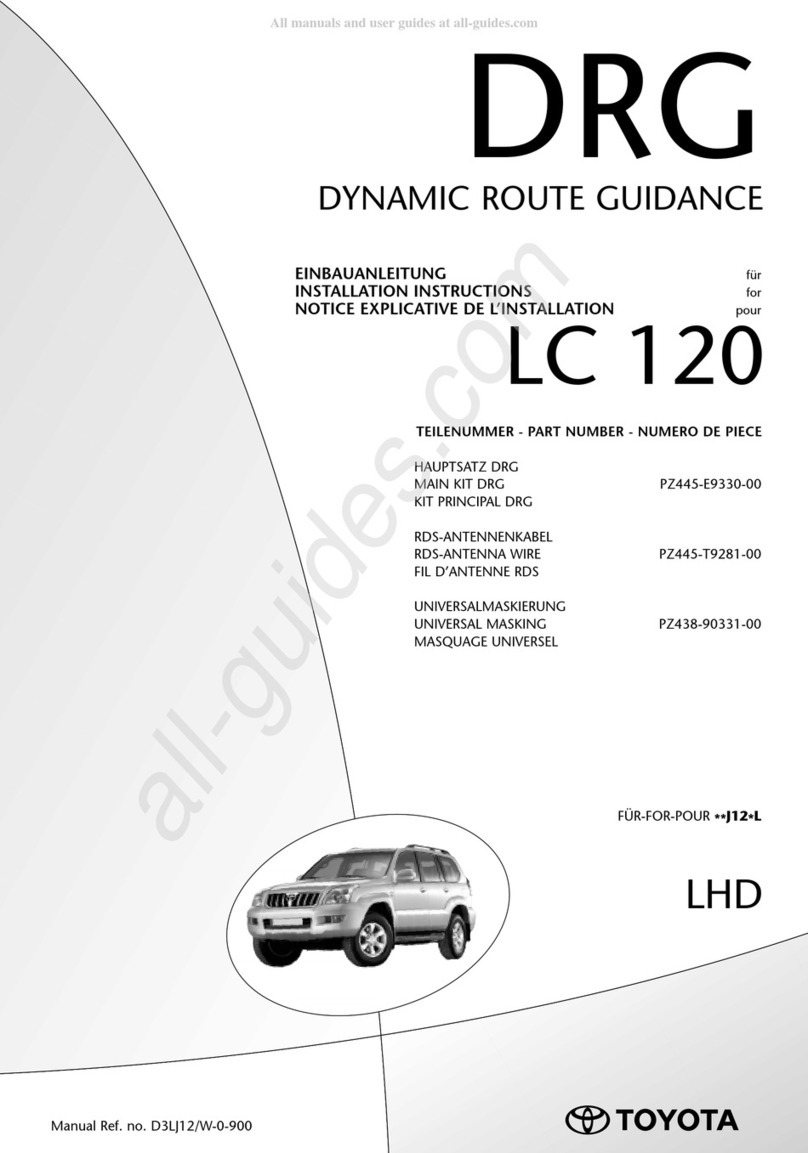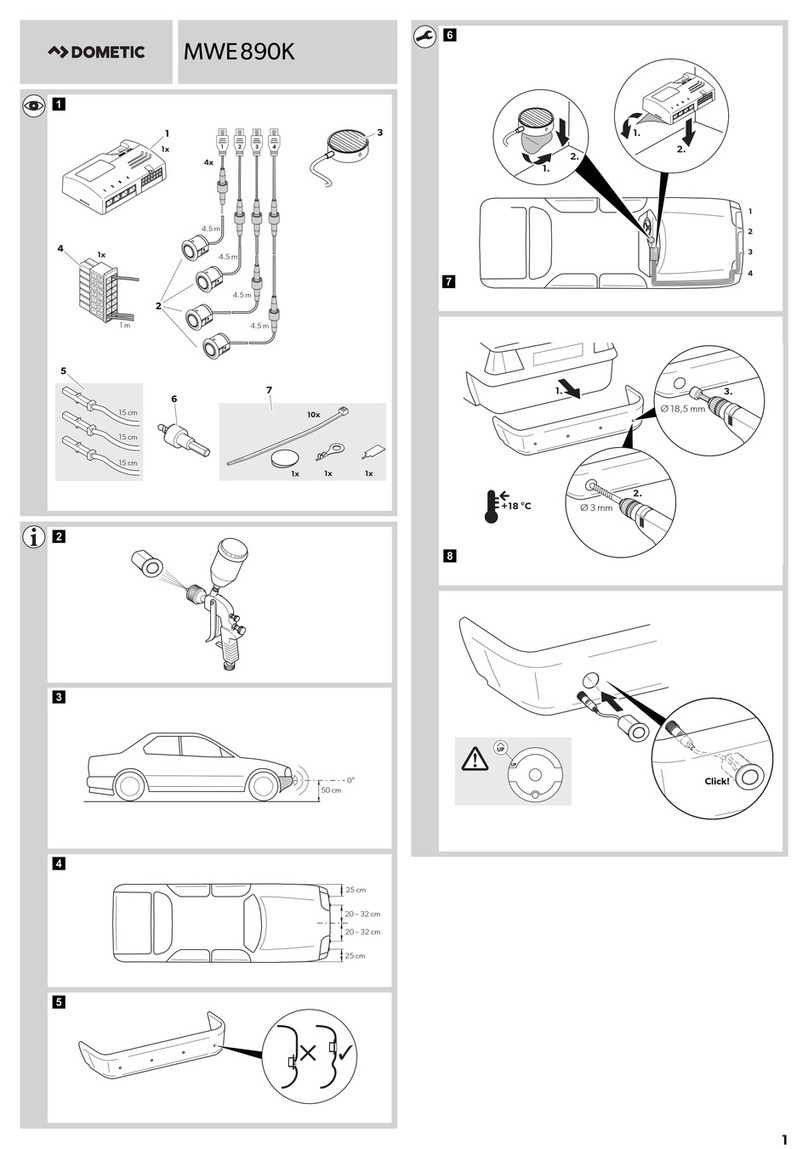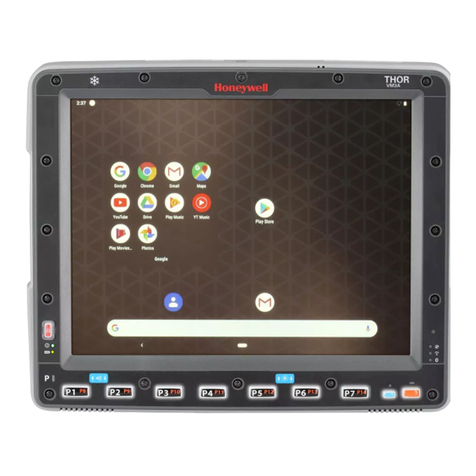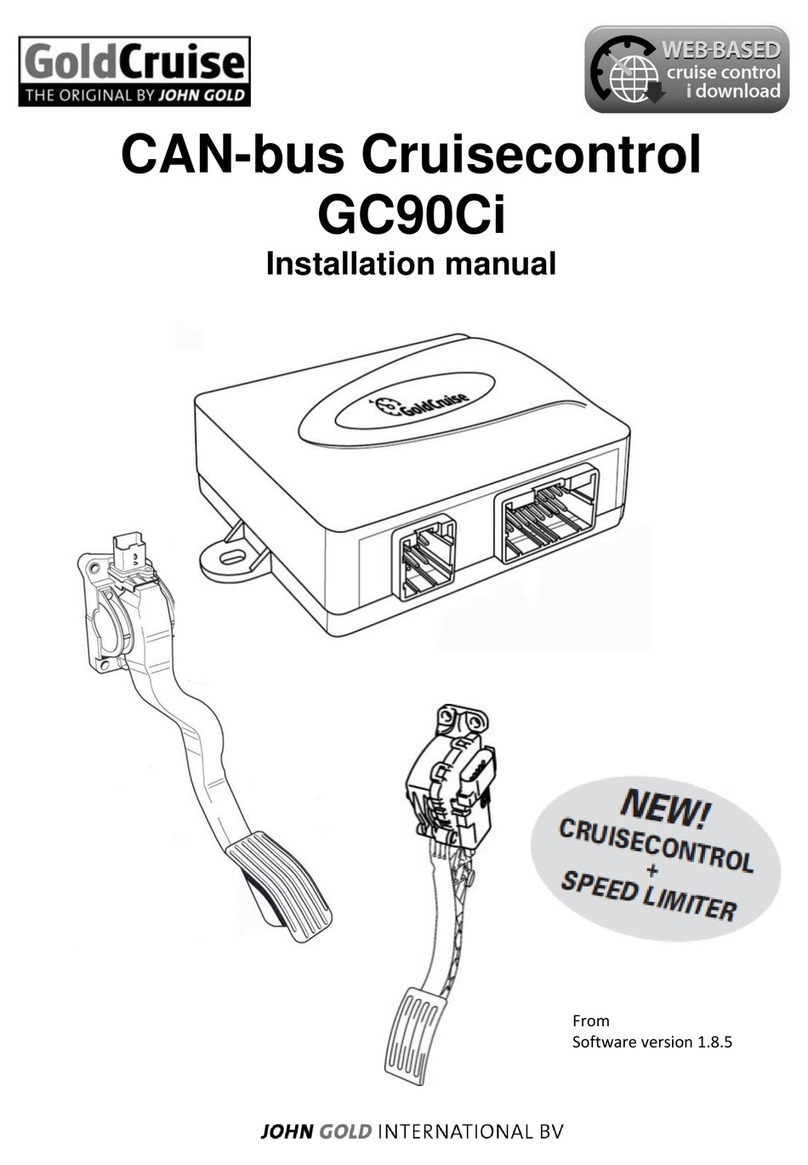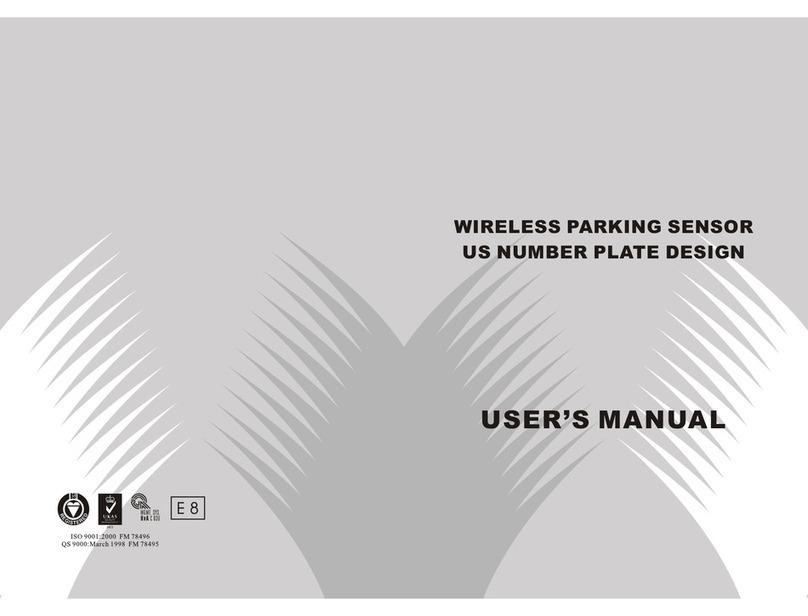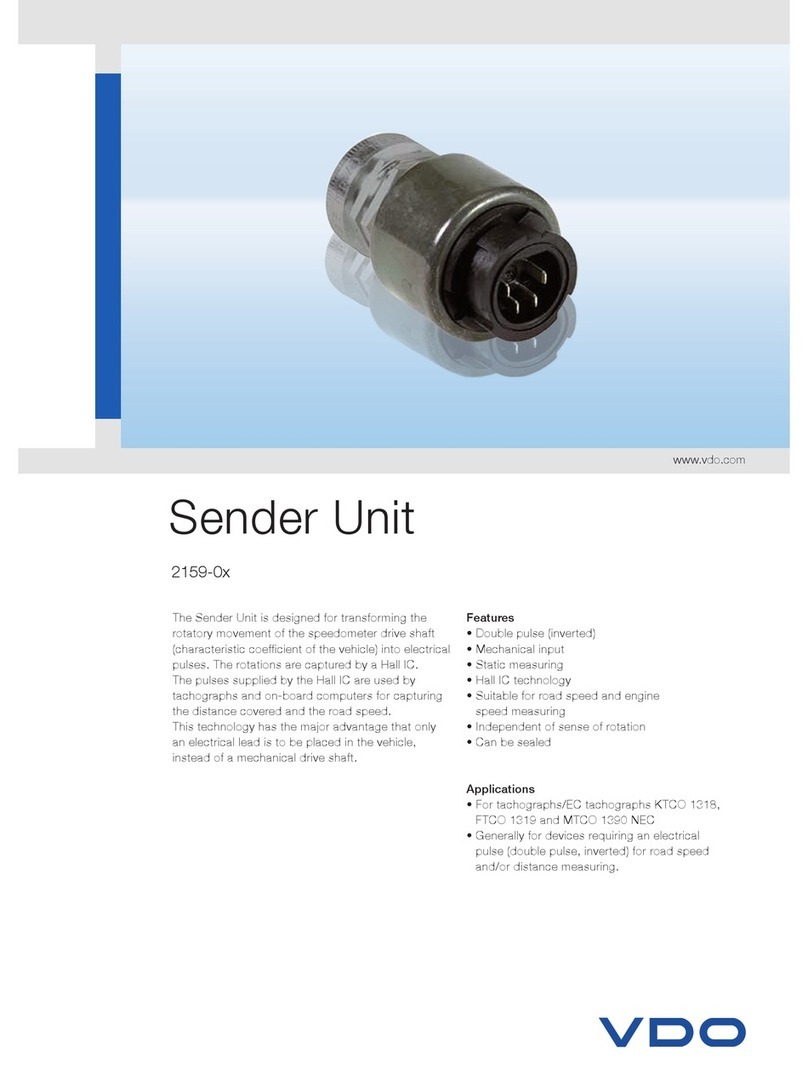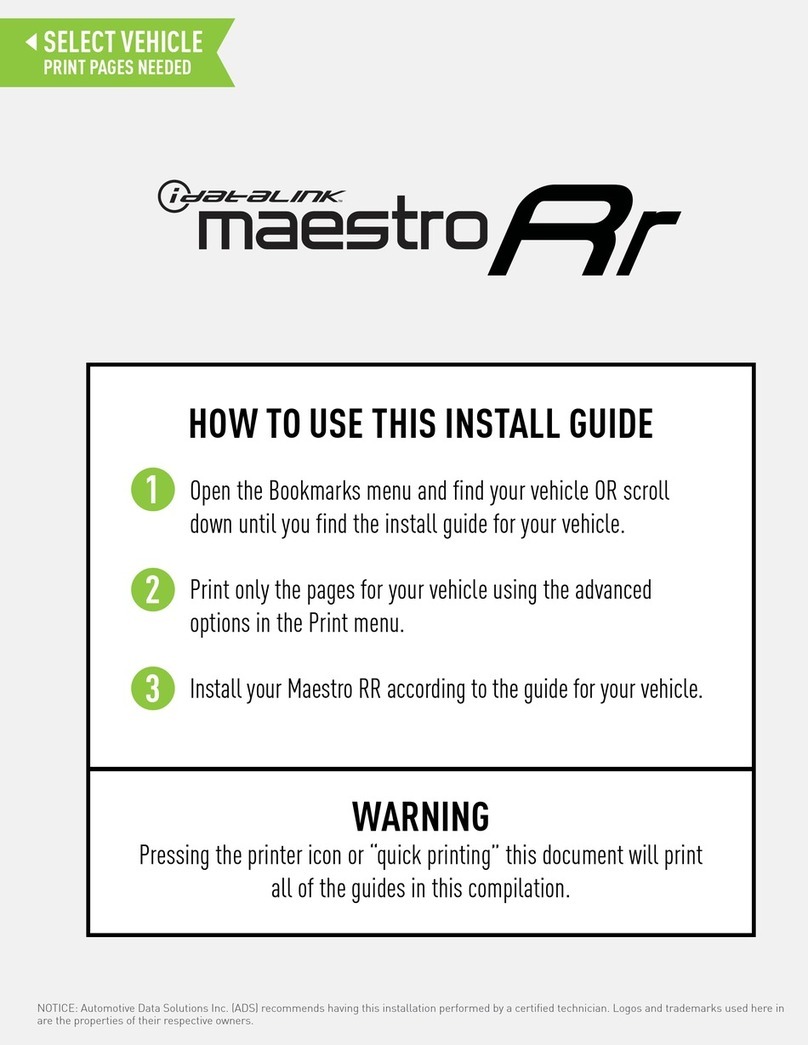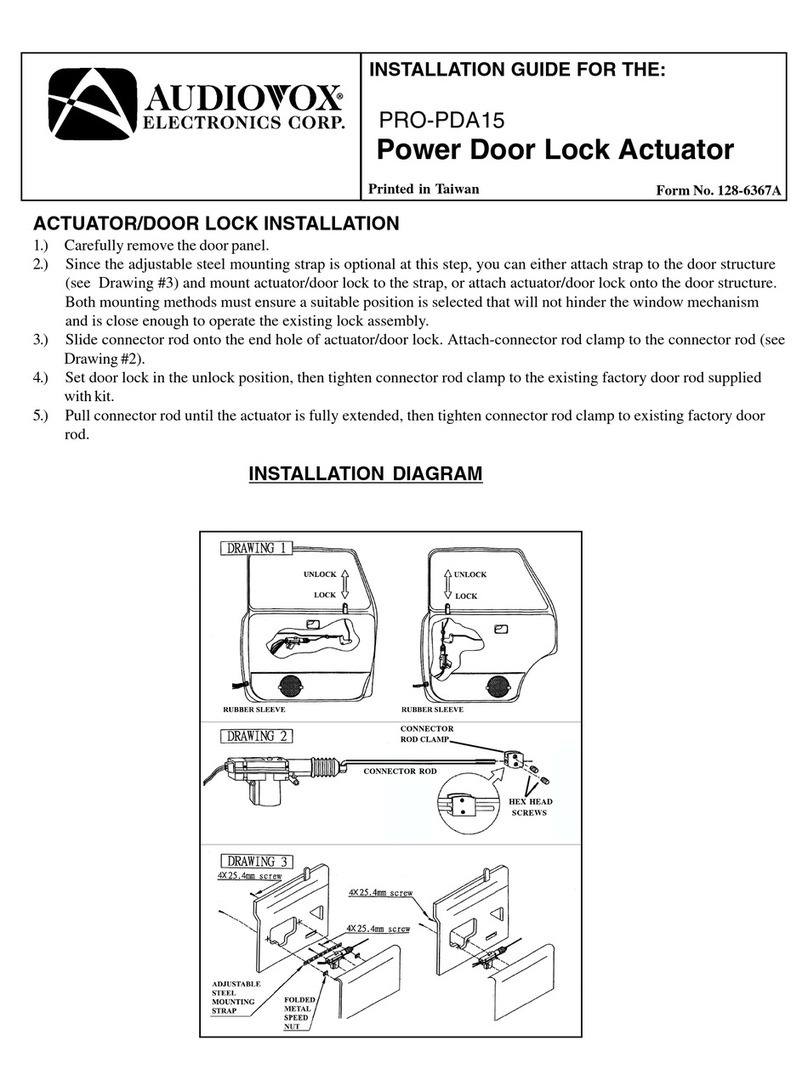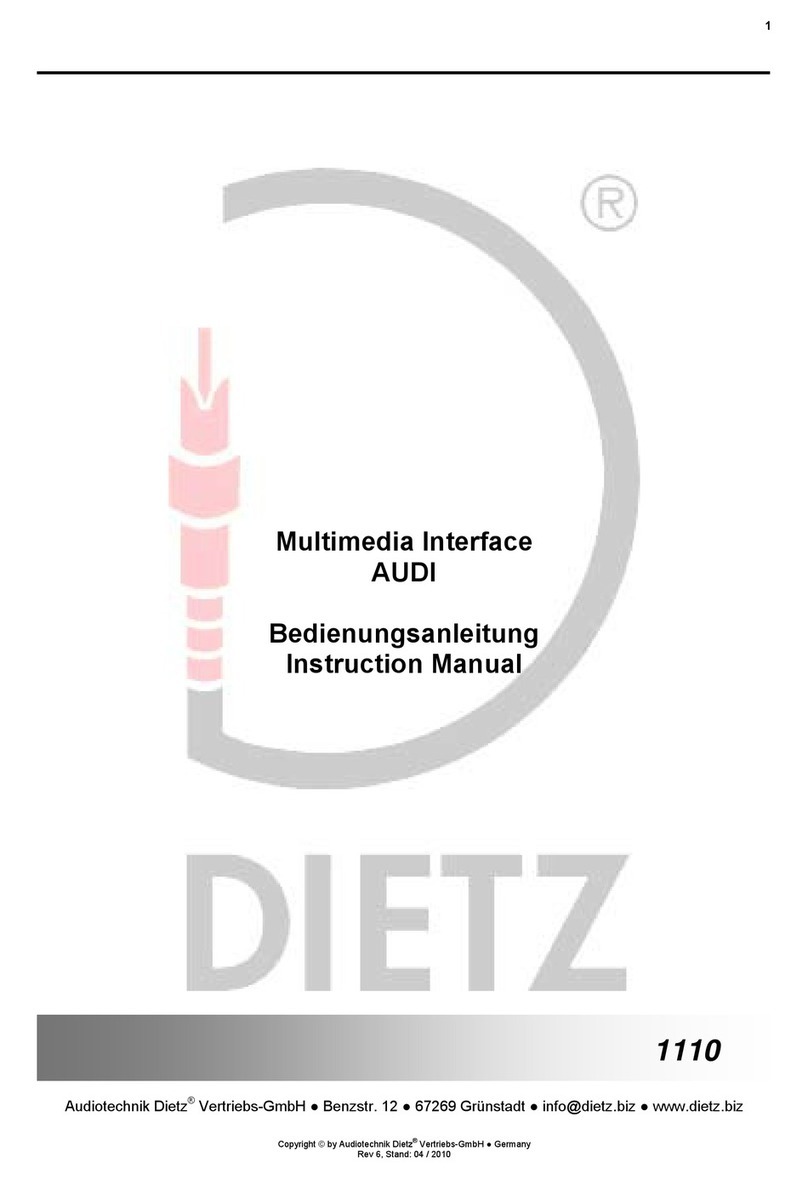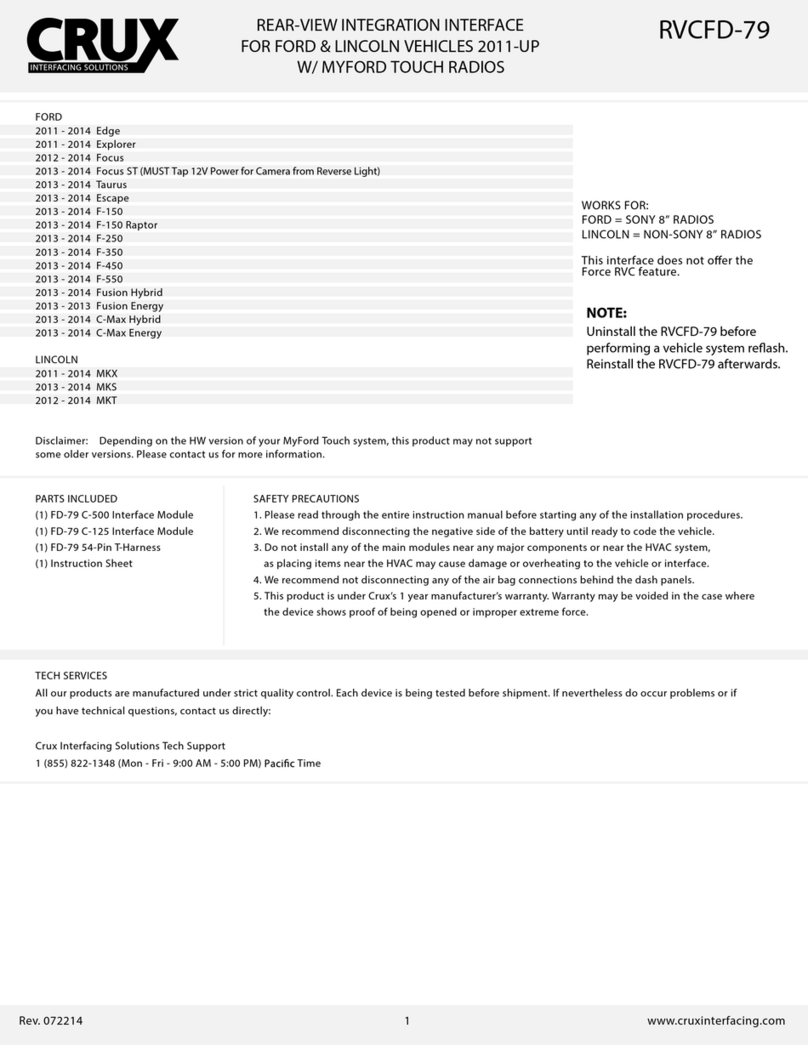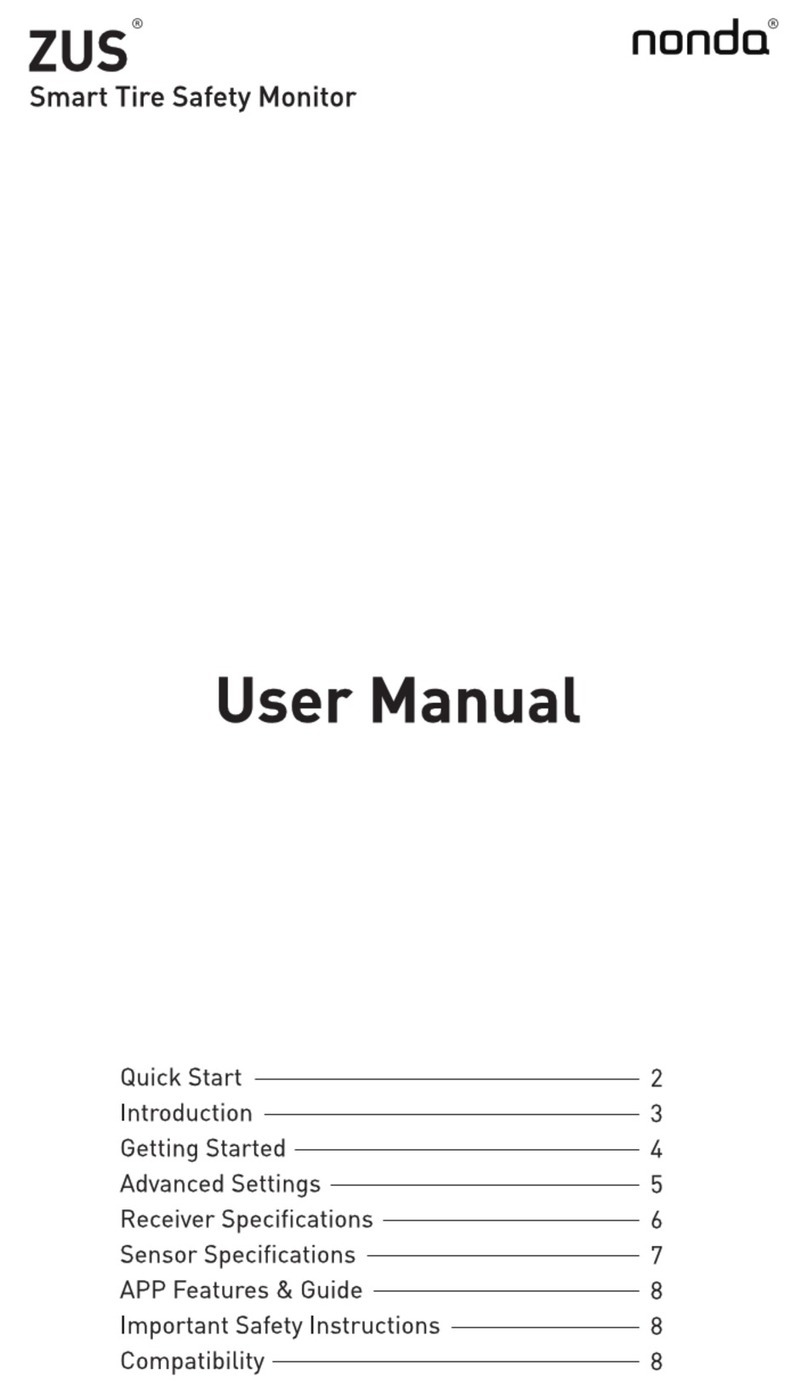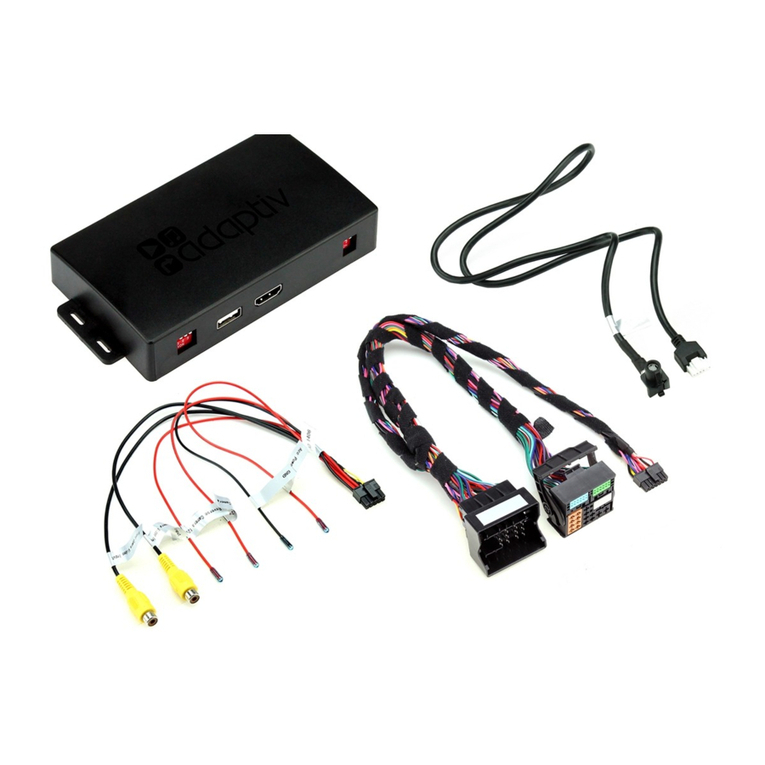8
Unpack one of the devices that has 3 transponders and the one
that contains 2 transponders. Install these 5 sensors into the front
bump-er of the vehicle. The 3 left-out transponders of the other
device will go to the rear of the vehicle, next to the license plate
lights. Place the transponders into the bracket and with the special
adjustment screws align them according to the rules mentioned
before. NEVER drill the transponders!
Lead the cables of the transponders through the car into the cabin.
The cables must not touch any rotating, moving or hot part of the car
(radiator, fan, engine block)! The cables must not strain, but cannot
be loose either! They can be fastened with the packaged cable ties.
Never knot or break the cables! Damaged cables may result in the
malfunction of the transponder and the interface, which might result
in losing the warranty.
The next step is to place the indoor unit (interface) of the KIYO Pro-
Park XT inside the cabin of the car. One interface can only operate 3
transponders, therefore, in the case of a front- and rear parking assist
system, you have to install 3 interfaces for the 8 transponders (2 KIYO
ProPark XT device with 3 transponders in a set and 1 KIYO ProPark
device with 2 transponders in a set). By using an auxiliary switch,
the interface can be installed hidden behind the dashboard, but in
this case, only the sound signal warns the driver to the dan-gers. In
case of a stealth installation, all 3 of the Parking Assist de-vices can
be turned on or off with this auxiliary switch.
After installing the interfaces, connect the JACK connectors of the
transponders into the FRONT and AUX sockets. Plug the connector
of the Power Cable into the DC12V socket, then connect the positive
cable (+) to the vehicle’s positive terminal and the negative cable (-)
to the vehicle’s negative terminal or to the chassis. The colors and
the labels of the cables help in the correct wiring.
In case of using more than one KIYO ProPark XT devices, it is recom-
mended to install an auxiliary switch as well.
